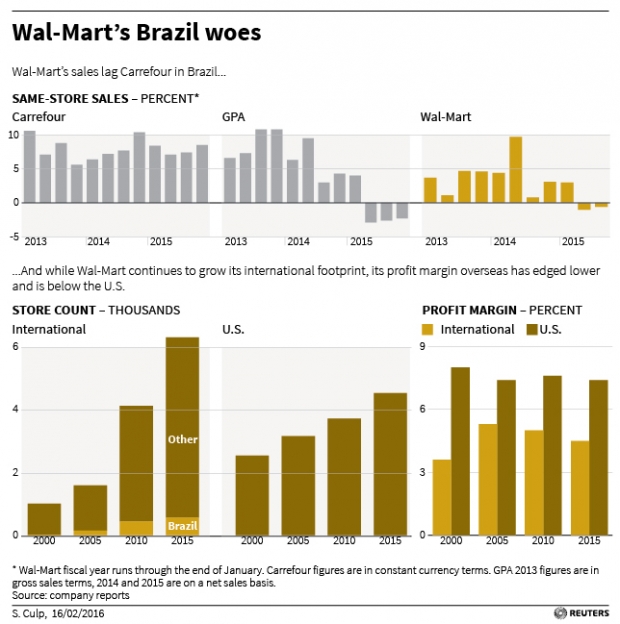Wal-Mart is one of America’s largest retail chains, and a household name. However, it’s expansion into Brazil has not gone smoothly, and things are not looking so good for the Arkansas-based store. Earlier this year, Wal-Mart was forced to close 60 – nearly 10% – of it stores due to failing profits.
According to their website, prior to the closures the chain had 544 stores, 200 pharmacies, 50 restaurants and 10 gas stations in 18 states and the country’s capital, in addition to an electronics business.
In order understand what happened, you must first know about Wal-Mart’s history in Brazil. Wal-Mart entered the country in 1995, and over the following ten years grew its business at measured steps. This was all about to change.
When Brazil’s economic boom started in the early 2000’s, the retailer went on a spending spree, acquiring local supermarket chains and expanding throughout the country. They even entered the then ‘underdeveloped’ Northeast
An over-optimistic sales forecast convinced executives to open more and more stores – they even feared that Wal-mart’s expansion was growing too slowly.

Wal-Mart performance in Brazil versus competitors. (Courtesy: Reuters).
Even after all the acquisitions and expansion, Wal-Mart has struggled to challenge the dominance of more established supermarket chains such as Companhia Brasileira de Distribuição (GPA SA) and Carrefour, which have deep roots in key cities like Rio de Janeiro and Sao Paulo.
What really went wrong for Wal-Mart was their lack of brand positioning. It wasn’t cheap enough for the poor, but there was no appeal for the ‘new middle class. either, whom GPA and Carrefour had already secured.
Adding to their woes, is that Brazil is notoriously difficulty for business. The taxation system is overly complex and logistics pose a serious problem. Indeed, Brazil ranks 116 out of 189 countries in Ease of Doing Business, according to the World Bank Group.
Wal-Mart’s fatal mistake was placing too much focus on store expansion at the expense of the needs of the Brazilian consumer. Brazil entered one of the biggest recessions in its history, which has seen bankruptcy filings more than double. If Wal-Mart want to keep their Brazilian business afloat, customer understanding will be key in this time of crisis.





